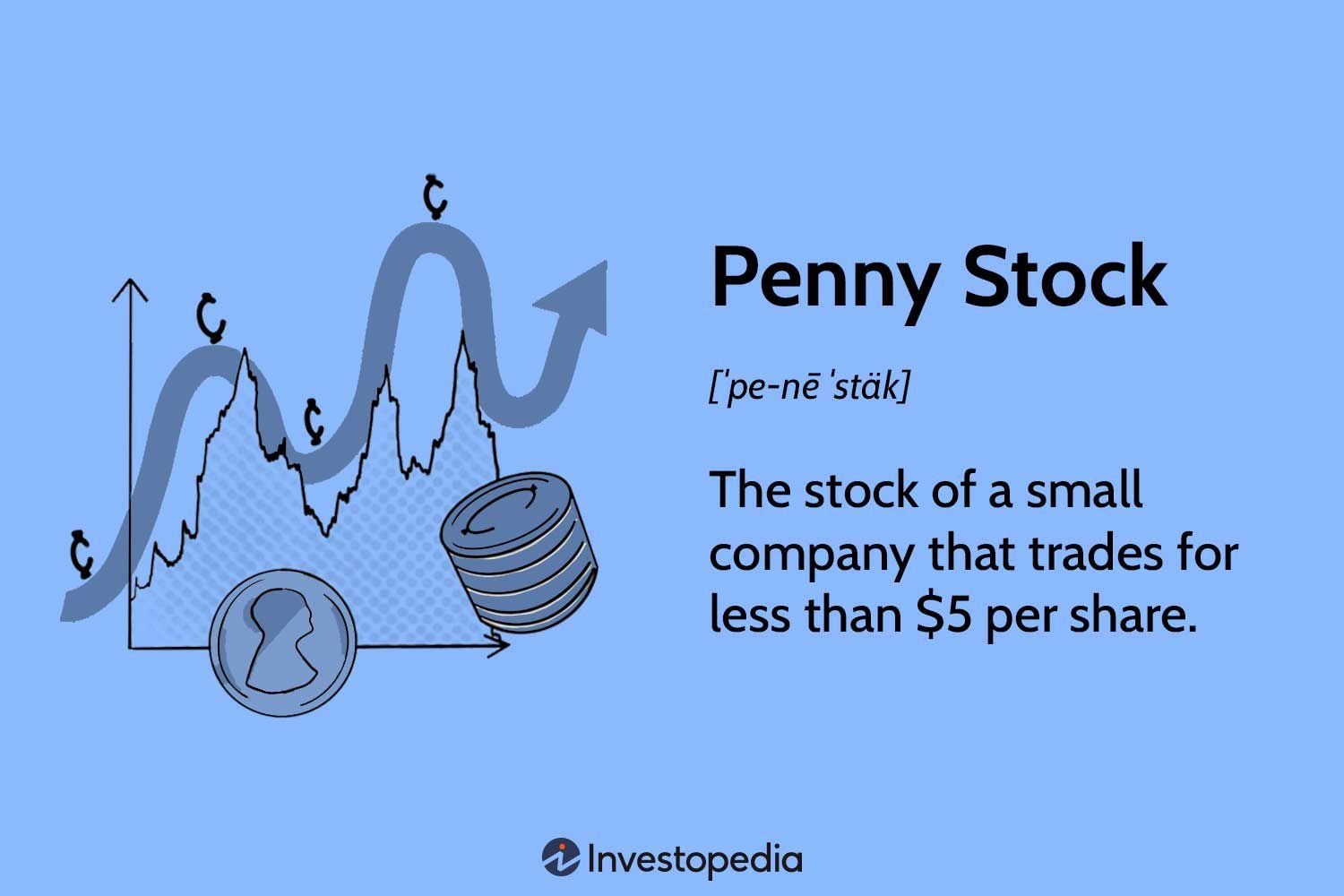Are you curious about the risks involved in penny stock investing? Look no further! Understanding the risks of penny stock investing is crucial for anyone looking to dip their toes into this high-risk, high-reward market. In this article, we will explore the potential pitfalls and challenges that come with investing in penny stocks. So, whether you’re a seasoned investor or just starting out, join us as we delve into the captivating world of penny stock investing and uncover the hidden dangers that await the unsuspecting investor. Ready to take a deep dive? Let’s get started!
Understanding the Risks of Penny Stock Investing
Penny stocks have gained popularity among investors looking for quick and substantial returns on their investments. These low-priced stocks may seem enticing, but they come with a significant amount of risk. It is crucial to understand the risks associated with penny stock investing before diving into this volatile market. In this article, we will explore the various risks involved and provide insights and tips to help you make informed decisions.
1. Lack of Liquidity
Penny stocks often lack liquidity, meaning that there may not be enough buyers or sellers available at any given time. Due to their low trading volume, it can be challenging to buy or sell penny stocks at the desired price. When you’re unable to find buyers or sellers, you may face delays or even be forced to accept unfavorable prices.
1.1 Thinly Traded Stocks
Many penny stocks are thinly traded, meaning they have a low number of shares exchanging hands. Thinly traded stocks are particularly susceptible to price manipulation by dishonest individuals or organizations. They may artificially increase or decrease prices, creating false market trends and making it challenging to assess the true value of the stock.
1.2 Bid-Ask Spread
Another aspect related to liquidity is the bid-ask spread. The bid price is the highest price a buyer is willing to pay, while the ask price is the lowest price at which a seller is willing to sell. For penny stocks, the difference between the bid and ask prices can be significant, leading to high transaction costs. This wide spread can erode potential profits or increase losses when buying or selling penny stocks.
2. Lack of Information and Transparency
Penny stocks are often associated with companies that have limited track records, minimal financial information, and limited regulatory oversight. Due to their small market capitalization and lack of analyst coverage, information about penny stocks is often scarce. This lack of information makes it challenging to evaluate the fundamental strength of the company and its prospects accurately.
2.1 Incomplete Financial Reporting
Penny stocks are more likely to have incomplete or unreliable financial reporting. Small companies, especially those listed on over-the-counter (OTC) markets, may not adhere to the same stringent reporting standards as larger, well-established companies. This lack of transparency can make it difficult to assess the true financial health and potential risks associated with penny stock investments.
2.2 Pump and Dump Schemes
Penny stocks are a hotbed for pump and dump schemes. In a pump and dump scheme, fraudsters artificially inflate the price of a stock by disseminating false or misleading information. This creates a buying frenzy, enticing unsuspecting investors to buy the stock at inflated prices. Once the fraudsters have sold their shares at peak prices, they dump their holdings, causing the stock price to plummet. This leaves late investors with significant losses.
3. High Volatility
Penny stocks are known for their high volatility. Due to their low trading volumes and lack of investor interest, penny stocks can experience sharp price movements within short periods. This volatility can present both opportunities and risks for investors.
3.1 Price Swings
Penny stocks can experience extreme price swings, sometimes without any apparent reason. These price movements can result in substantial gains or losses within a short timeframe. The lack of liquidity and limited information amplifies the impact of any news or events, leading to exaggerated price movements.
3.2 Lack of Market Stability
Penny stocks often lack the stability and predictability of larger, more established stocks. The absence of institutional investors and the small size of these companies make them more susceptible to market swings and external factors. Economic downturns or negative news can have a magnified impact on penny stocks, leading to significant losses for investors.
4. Difficulty Exiting Positions
Exiting penny stock positions can be challenging, primarily due to the lack of liquidity and market interest. When you decide to sell your penny stock holdings, finding buyers at the desired price may prove difficult. As a result, you may be forced to sell at lower prices, significantly impacting your overall returns.
4.1 Trading Halts and Suspension
Regulatory authorities may impose trading halts or even suspend trading on certain penny stocks. This can happen due to various reasons, including suspicions of fraudulent activities or concerns about investor protection. During these trading halts or suspensions, you may be unable to sell your shares, leaving you locked into the position until trading resumes.
4.2 Limited Shorting Opportunities
Shorting penny stocks, or betting on their price decline, can be challenging due to the limited availability of shares to borrow. Shorting requires borrowing shares from other investors and then selling them in the hopes of buying them back at lower prices. However, due to the lack of liquidity and interest in penny stocks, finding shares to borrow can be difficult, limiting shorting opportunities.
In conclusion, while penny stocks may appear appealing due to their low prices and the potential for significant returns, they carry substantial risks. The lack of liquidity, limited information and transparency, high volatility, and difficulty exiting positions can lead to significant losses for investors. It is crucial to thoroughly research and understand each stock you consider investing in and carefully assess the risks involved. Penny stocks should only be a small portion of a well-diversified investment portfolio, and investors should exercise caution and seek professional advice when navigating this complex and risky market.
Intro to Penny Stocks (The TRUTH behind Penny Stock Investing )
Frequently Asked Questions
Frequently Asked Questions (FAQs)
What are the risks associated with penny stock investing?
Investing in penny stocks carries several risks. These stocks are typically issued by small companies with limited track records, making them more volatile and susceptible to sudden price fluctuations. Additionally, penny stocks often lack liquidity, meaning it can be challenging to sell them at desired prices. There is also a higher risk of fraud and manipulation in the penny stock market.
How can I mitigate the risks of investing in penny stocks?
While it is impossible to eliminate all risks, there are steps you can take to mitigate the risks associated with penny stock investing. Conduct thorough research on the company and its financials before investing. Diversify your portfolio by investing in a variety of stocks rather than putting everything into penny stocks alone. Setting stop-loss orders can also help minimize potential losses by automatically selling if a stock’s price drops below a certain level.
Are penny stocks suitable for long-term investments?
Penny stocks are generally not recommended for long-term investments. These stocks are often highly volatile and can be influenced by external factors that may not align with a long-term investment strategy. It is better to consider penny stocks as part of a short-term trading strategy rather than a long-term investment plan.
What are the potential rewards of penny stock investing?
Investing in penny stocks has the potential for high returns. Since these stocks are often undervalued, any positive developments within the issuing company can result in significant price appreciation. However, it’s important to note that the potential rewards come with higher risks, and not all penny stocks will deliver positive outcomes.
Where can I find reliable information on penny stocks?
Finding reliable information on penny stocks can be a challenge due to the limited regulatory oversight and potential for misinformation. However, you can start by researching financial news websites, stock analysis platforms, and reputable investment forums. It is crucial to cross-reference information from multiple sources and conduct thorough due diligence before making any investment decisions.
Are there any regulatory requirements specific to penny stocks?
Penny stocks are subject to certain regulatory requirements, particularly in terms of disclosure and investor protection. In the United States, for example, the Securities and Exchange Commission (SEC) imposes specific rules on penny stock trading to protect investors from fraud and manipulation. These regulations include the requirement for brokers to provide customers with a risk disclosure document before trading penny stocks.
What is the difference between penny stocks and regular stocks?
The main difference between penny stocks and regular stocks lies in the market capitalization and price. Penny stocks typically have a market capitalization of under $500 million and trade at a low price per share, usually under $5. Regular stocks, on the other hand, are issued by well-established companies with higher market capitalizations and often trade at higher prices.
Can I make a substantial profit by investing in penny stocks?
While it is possible to make substantial profits by investing in penny stocks, it is essential to recognize the associated risks. Penny stocks can be highly volatile, and not all investments will yield positive results. It is crucial to approach penny stock investing with caution and conduct thorough research to increase the chances of making profitable trades.
Final Thoughts
Understanding the risks of penny stock investing is crucial for any investor. Penny stocks may seem enticing due to their low prices, but they come with a significant amount of risk. Lack of regulation, limited liquidity, and susceptibility to fraud make penny stocks a risky investment option. Furthermore, the potential for significant price volatility can lead to substantial losses. Therefore, it is essential for investors to thoroughly research and understand the risks associated with penny stock investing before diving in. By being aware of these risks, investors can make informed decisions and minimize the chances of financial loss.



